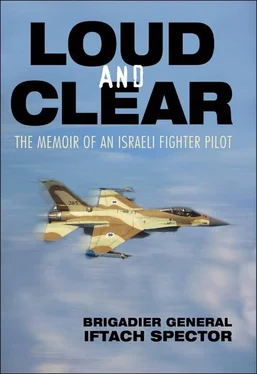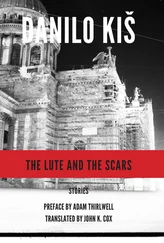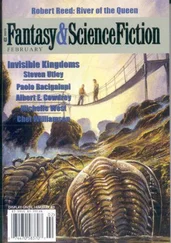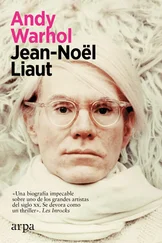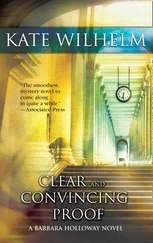In her childhood in the twenties, there were not many Jewish families living in Jaffa. Her father, Nathaniel Tatar, wrote in his diary, “I was almost the only Jew who lived among the Arabs.” Shoshana was sent to school at the Christian mission. There she was taught in Arabic and English. To show me her mastery of the languages and to amuse me, she used to recite all sorts of poetry she had been required to memorize in both languages, and would preach to me in forceful Arabic, “Rach A Shitta, Jaa Seif” (the winter has gone, spring has come). Sometimes she would sing off-key, “Di Yea Ken John Peel” or “Elsie Marley, the wife that sells the barley honey” and Shakespeare’s “the hei and the ho and the hei.” I especially enjoyed when she taught me a song she called a ditty, and to this day I remember part of it:
Master Bullfrog, grave and stern,
Called the classes each in turn;
Sitting there upon a log,
Taught them how to say “Ker-chog.”
ACTUALLY, SHE DISCONNECTED herself from her family, and saw her parents—in comparison with her friends from the Palmach—as “provincial.” Even when she took me to the north, she didn’t stop to see them, and they didn’t visit us and never called or wrote.
Her connection with her past existed only in her stories, not in the reality I saw as a child. Even her weird family name, Tatar, didn’t connect to anything I knew. Shosh seemed to me some force of nature, existing by itself and with no origin.
ONLY ONCE DID I SPEND the night at her parents’ house, and then I realized that they really existed. I was about five years old then.
It was close to the end of World War II, perhaps in mid-1945. I don’t know what caused their daughter, Shosh, to visit them on that day and leave me there for the night, but the memory remains sharp and clear.
A heavy summer heat hung over the Izreel Valley. My grandparents—they were about sixty—had a small house and a small farm on the outskirts of the provincial township of Afula in the valley. The house had two rooms. Both doors opened to a veranda in front. The veranda was closed in, and served as foyer and guest room. Bracha’s kitchen was a cubicle at the right side of the veranda, and inside were two kerosene stoves coated with gray enamel. Blue flames shone behind two little glass doors, and two large aluminum pots stood on them, boiling, full of laundry and food. The floor’s cement tiles had sunk, and Grandpa used the cool dents under the bed to store watermelons. I squeezed in there and lay down on the clean floor. My grandfather pulled me out, stuck a book in my hand, and ordered me to leaf through it.
Nathaniel Tatar was a sinewy man in his undershirt, and his eyes were bright and hard like my mother’s. His face was dark and furrowed. When he found out that I knew how to read, he tested what I could understand, his stiff finger moving along the lines of the book. Grandma Bracha, in cotton dress and apron, hurried to save me from him. She brought hot tea in glasses, and dry biscuits. She looked small and shriveled near her husband, and her Hebrew—in contrast to his—was poor and distorted, and suffered from a heavy Russian accent. I once heard Shosh, my mother, calling her “the hen.”
“Ess, ess, Yingale,” the hen told me by the table, and when I didn’t understand she explained, “Eat, eat. No horror.”
My mother left and went about her business, and I was left with the old folks.
The smell of kerosene filled the entire house from Grandma’s tiny kitchen. At noontime another smell joined it, the DDT she sprayed from a pump, to keep the flies and gnats away. I liked the smell, which hovered like a cloud of tiny, cool particles. After lunch, which was chicken guts (she taught as she fed me: “belly button,” in Russian, is “pupik”), she closed the windows against the hot wind, lowered the curtains, and sent me to their bed for a forced noontime nap. When I opened my eyes she was sitting at the corner of my bed, sailing into a long and vague story about the city of Bukhara, and then she passed somehow to anecdotes from the life of the Bedouins. Most of what she said I couldn’t understand. Grandfather was out at work, and my mother hadn’t returned yet. Grandma dressed me and sent me to shred fresh clover with a bladed wheel (“You kerfooyl, kerfooyl!”). I scattered the cut clover around for the chickens and they came running over to me, croaking and pecking. I tried to touch them, but the colored rooster drove me away. The excrement stuck between my toes. At last Grandma washed my feet, fed me a soft-boiled egg, and lay me down again, this time on the sofa in the second room.
There was still light in the window, and I couldn’t fall asleep. Grandfather came in, dug in the glassed-in bookshelf above me, found what he was looking for, and put a notebook before me.
“Read it,” he pleaded. His face was different this time, soft and supplicatory. When he left, I opened the notebook and found handwritten script, in blue ink. At my age handwriting was still not easy to read, and only the many strange names attracted me. Kusseima, Suez, they sounded like magic words as I muttered them. Most of all I was fascinated by a name that sounded as if out of the Arabian One Thousand and One Nights , and I rehearsed it time and again, whispering, “Darb El Hajj.” Finally Grandma came and put out the lamp. Across from my couch a big radio hissed and muttered. It was made of wood, and had a round window coated with cloth like straw. The radio sported a lit frequency dial, and had a green indicator and a green eye that flickered all the time, opening and closing. It hypnotized me.
When I woke, mosquitoes sang. Yellow, vibrating electric light and jets of cigarette smoke entered through the slit of the door, mixed with the jingling of glasses and the screeching of chairs. Spoons rang on saucers. There were guests in the entrance room. They argued about something, my mother’s voice rising above all of them with a strident tone. From time to time there were long periods of silence and then I heard the old man grunt, and the sounds of sipping of tea. Sometimes Grandma Bracha squeaked, her voice cajoling. I understood that she was trying to find a compromise among the hard people of her life.
Suddenly the radio near me began the tones indicating a news broadcast. The chairs in the next room scraped the floor. The door opened carefully, and they all came in on tiptoe. My mother sat on the couch, near me. The narrator spoke in a low, deliberate voice. She spoke words I knew already: Allies. Nazis. Jews. Russia.
That evening, when everybody had gone and my mother arranged to sleep near me, I learned that I was a Jew too. I listened with a lot of interest to the Nazi plan to kill all the Jews. Before I fell asleep I thought about it a long time, a little surprised and proud of the fact that the Nazis—creatures I knew nothing about—knew about me and were interested in me. When my mother pulled up the blanket and turned over, before dozing took me over, I asked her silently what “Darb El Hajj” was. The Road of the Celebrators, she told me, and suddenly asked, “What, he already stuck you with his notebook? Oh, that bookkeeper, what does he hope to accomplish with that?”
NATHANIEL TATAR, A BITTER, hard person, left behind him thirteen pages written with a scratchy pen in blue ink, in basic, sometimes archaic Hebrew. In this notebook I found buried a vanished world.
My mother’s parents began their journey to the land of Israel (there was no country then, just the land) in the township of Rezina, near Kishinev, in Moldova. Nathaniel was a veteran of the tsar of Russia’s army. His odd name, Tatar, had an alien sound, and he was formally registered as a Christian. One can assume that he came from one of the Mongol-Tatarian communities of Eastern Europe. On the other hand, his twenty-three-year-old bride, Bracha (blessing), had a good Jewish name. They married through a matchmaker and settled down in Rezina. Nathaniel managed an agricultural farm for its owners.
Читать дальше
